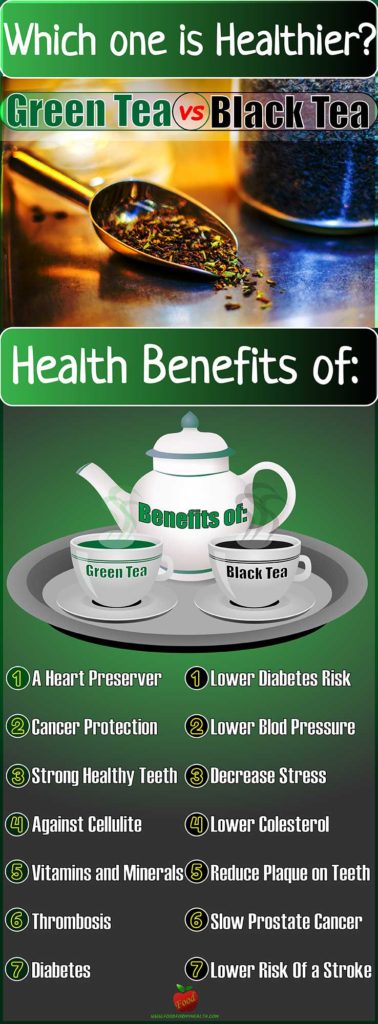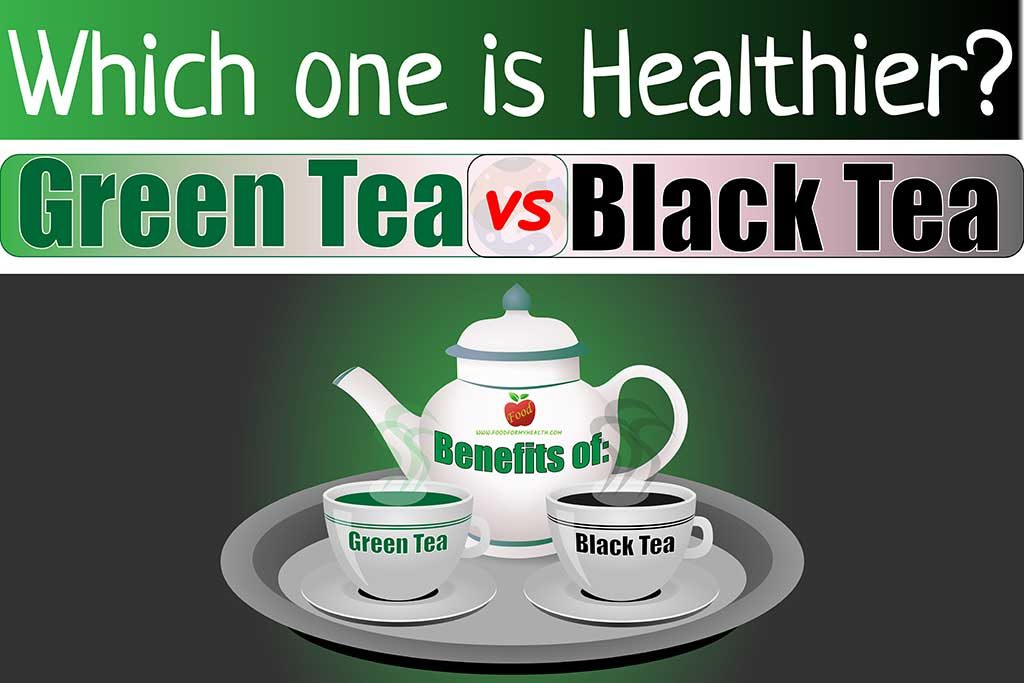Which One Is Healthier Green Tea or Black Tea?
Drinking tea reflects a lifestyle where experimenting with aromas and tastes of all kinds is appreciated. Only a few know that green and black teas are leaves of the same herb, Camellia sinensis, they are just processed differently.
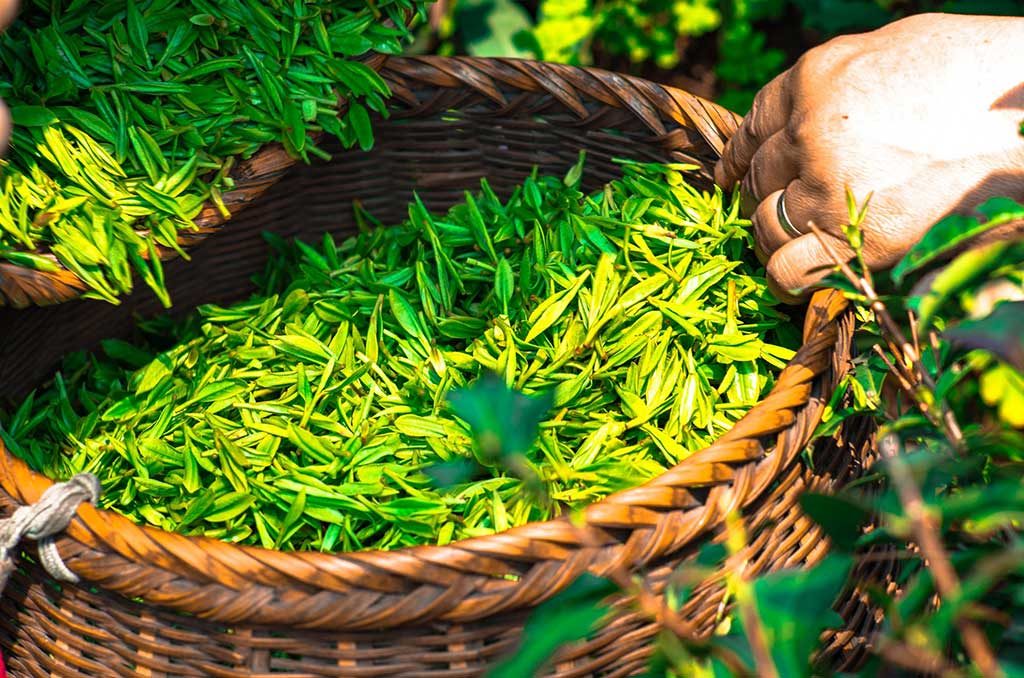
The freshly gathered leaves are first left to dry, and then they are processed, i.e. crushed. This is similar to the process used to make the kind of products seen if you visit this website. The juice that is released from the cells, combines with the air oxygen and this process is called fermentation. During this process, essential oils are released, which is of great importance for the tea itself. This is how black tea is made.
What is the difference between green and black tea?
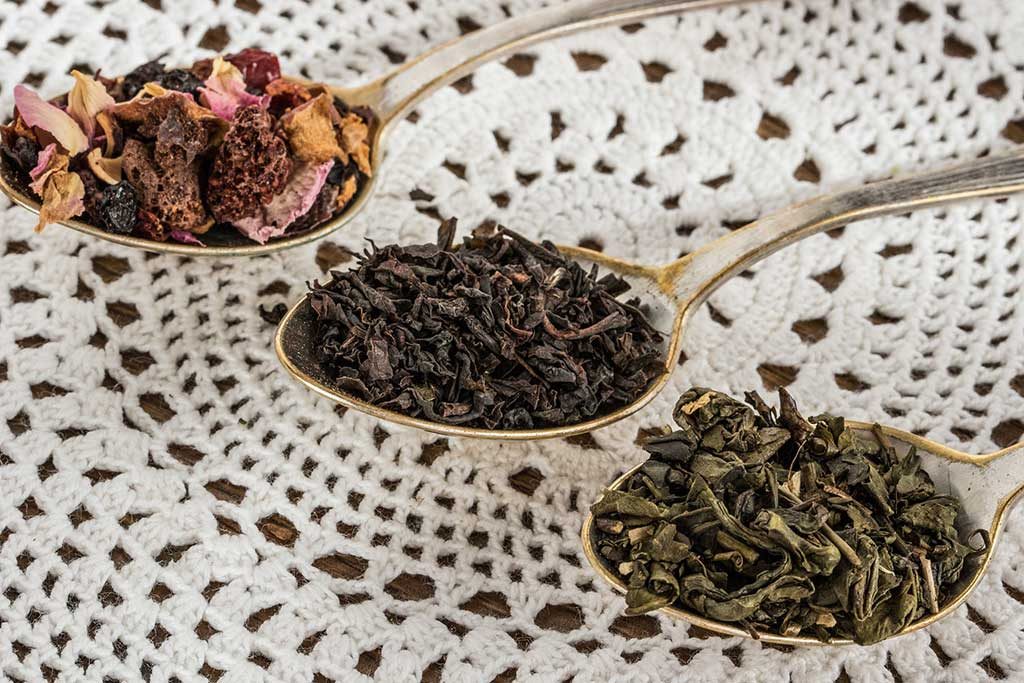
The difference between green tea and black tea is that the former one is unfermented tea. Shortly after they are picked, the leaves are processed with water steam. This prevents fermentation and the leaves preserve their green color. Green tea, thanks to the manner in which it is processed, preserves a great part of the active ingredients and, compared to black tea, has more powerful properties. Black tea is rich in caffeine and antioxidants and therefore is particularly recommended for morning wake-up calls for your body and for a day packed with activities. Of course, there are a lot of other herbal teas that can help your body as well.
Preparing of Tea
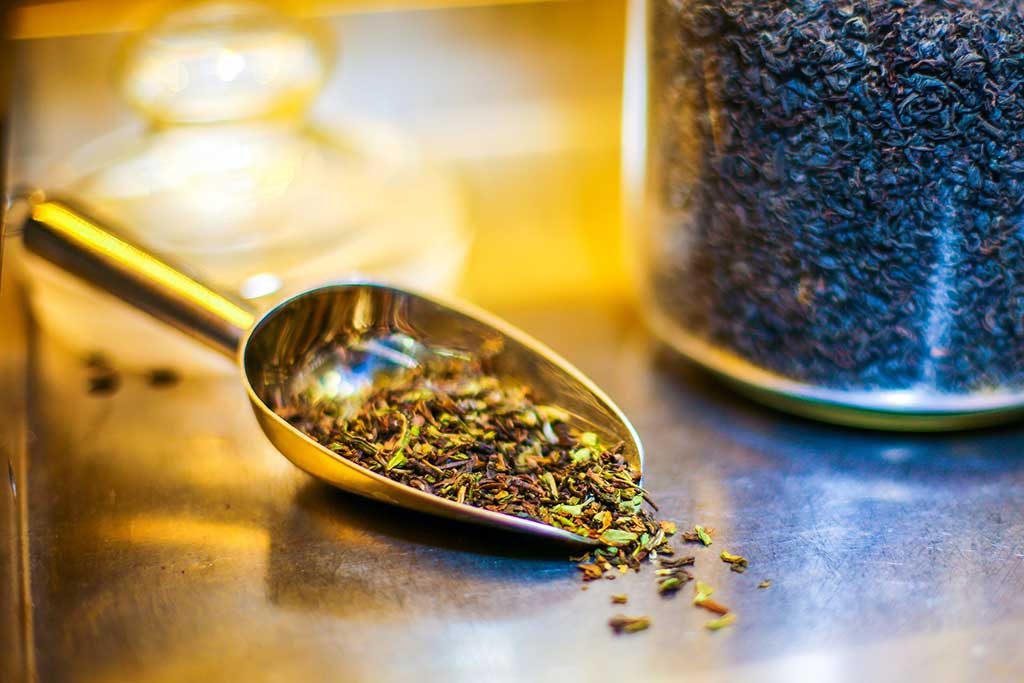
When tea is being prepared it is important to correctly combine the amount of tea, the water temperature and the duration of the infusing. The quantity of dry tea used to prepare one cup depends to a great extent on the personal tastes of the consumers. This beverage is prepared to be stronger or weaker through the quantity of tea used, not through the duration of infusing. The temperature of the water that is poured over the tea leaves is determined by their level of fermentation. The pre-boiled water is left to cool until it reaches a temperature suitable for a certain kind of tea. For semi-fermented or unfermented tea, the temperature is lower in order to preserve the antioxidants. The temperature of infusing is higher for the fermented kinds of tea in order to extract the compound polyphenol molecules.
The benefits of tea
Although doctors and nutritionists continuously accentuate that our body needs a great amount of fluids, research shows that as much as 80% of the population does not comply with that. A reminder: Fluid deficit can cause symptoms of dehydration and other inconveniences, from lethargy to headaches and fatigue. Tea drinking combines the pleasant and the beneficial because aside for hydrating, it also has a pleasant taste and beneficial effects on the body.
Green tea is rich in flavonoids, or to be more precise, polyphenols which have powerful antioxidant properties. Polyphenols neutralize free radicals which have a destructive effect on the cells (a reason for the developing of various illnesses) and speed-up the aging process. Active polyphenol in green tea leaves is an around 200 times stronger antioxidant than vitamin E. The same polyphenol is responsible for blocking the effect of several factors, such as cancerous factors, ultraviolet light or already existing metastases.
There are several published studies on polyphenols from young green leaf tea that affirm that they have a significant role in preventing various skin diseases caused by external factors.

Health benefits of Green tea:
1. A heart preserver.
The natural antioxidant properties of green tea protect the body from heart diseases because they decrease the risk factors, such as high cholesterol, higher triglycerides, and high blood pressure. The cholesterol level in the blood decreases proportionally with the quantity of consumed green tea, and research shows that it lowers the systolic pressure.
Catechins in green tea inhibit the activity of the enzyme produced by the kidneys which increases blood pressure.
2. Cancer protection.
Green tea decreases cancer risk. The many conducted researches prove the protective effect of tea in some types of cancer. The research conducted by the Japanese Ministry of Health showed a significant decrease in the number of cancers caused deaths, especially stomach cancer, in the parts of the country where green tea is consumed in huge quantities. In the research conducted by Japanese and Chinese scientists there is data that drinking 5 to 7 cups of green tea daily decreased the metastases in some of their patients.
3. Strong and healthy teeth.
Green tea is rich in flour which is important for the bones and for the teeth, helps prevent teeth decay and gum diseases. The regular intake of flour protects teeth from caries. Just one cup of green tea contains 0.3 to 0.5 mg of flour. Drinking green tea can help to keep your mouth healthy and free of problems like the ones listed above. Sometimes teeth decay and gum disease may not be preventable, regardless of how much green tea you drink. When you notice these oral issues, it is important that you make an appointment with a dental clinic that is local to you so that these problems can be treated as soon as possible. Keeping up with your oral hygiene is something that must be done to ensure that you stay healthy, and drinking green tea is one of the many ways in which you can do this.
4. Against cellulite.
Green tea helps fight cellulite because it limits fat absorption and incites surface circulation. It is known as a tea that helps weight loss.
5. A rich source of vitamins and minerals.
Green tea contains a significant quantity of vitamin C, a very powerful antioxidant. Its concentration in green tea is four time greater than in lemons and oranges. This high vitamin C content in green tea helps it strengthen the immunity system and prevents the negative effects of free radicals in the body, the cause of many illnesses.
Also, green tea is rich in vitamin B1, B2 and E. Five green tea cups provide 5 – 10% of the daily need of riboflavin, niacin, folic and pantothenic acid.
Five cups of green tea satisfy the daily mineral needs, i.e. 5% magnesium, 25% potassium, 45% manganese.
6. Prevent Thrombosis.
Green tea prevents agglutination of thrombocytes, and decreases the risk of thrombosis.
It has e preventive effect for this disease.
7. Lower risk of Diabetes.
Maybe it is unusual, but green tea inhibits and increases the sugar in the blood, i.e. the sudden increase of the blood sugar level. For this reason, it is also good for individuals with diabetes.
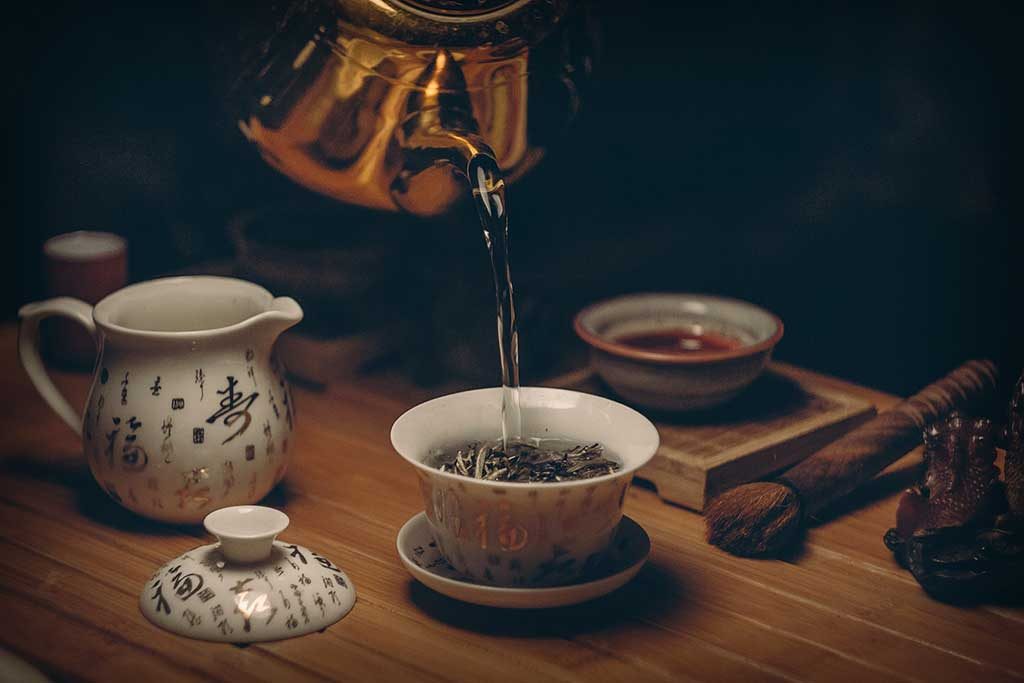
Health benefits of Black tea:
1. Lower diabetes risk.
Countries with higher black tea consumption have lower type 2 diabetes rates, compared to other nations
2. lower blood pressure.
Individuals with hypertension may benefit from drinking black tea. Scientists at The University of Western Australia and Unilever suggest that the people who drank the black tea were found to have lower systolic and diastolic blood pressure within a 24-hour period.
3. Decrease stress.
Researchers from the University College London found that black tea can help people decrease their levels of cortisol, a stress hormone.
4. Lower cholesterol.
An experiment of 240 people suggests that daily extracts of the teas can reduce cholesterol by up to 16 percent.
5. Reduce plaque on teeth.
A study from the Chicago College of Dentistry suggests that individuals who rinsed their mouths with black tea several times a day had less plaque buildup than those who rinsed with water.
6. Slow prostate cancer cell growth rate.
Researchers at the University of California at Los Angeles found that prostate cancer cells grew more slowly when placed in a medium containing blood serum of men who had consumed black tea for five days compared to serum collected before the men began their tea-drinking schedule.
7. Lower risk of a stroke.
It has been suggested that individuals who consume three or more cups of tea had a 21 percent lower risk of a stroke than people who consume less than one cup of black tea per day.
Pin Us On Pinterest
